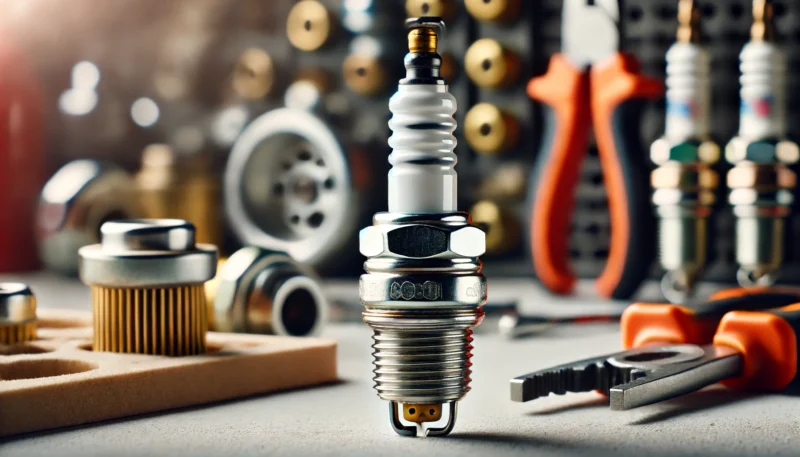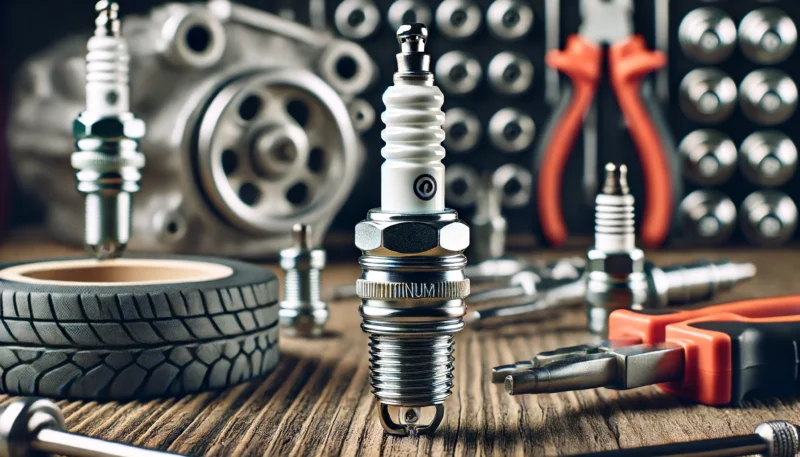Spark plugs are super important for your engine’s performance, fuel efficiency, and overall reliability.
You’ll often come across regular (copper) and platinum spark plugs as popular choices. Knowing the differences between these two can help you make a smart decision.
You’re not sure which one is right for you? That’s where I come in!
Regular spark plugs

Regular spark plugs, also known as copper spark plugs, are the most basic type available. They have a solid copper core and a nickel alloy electrode. Here’s a closer look at their characteristics:
Composition and design
They are made with a solid copper core. Copper is an excellent conductor of electricity, which makes these spark plugs very effective at igniting the fuel-air mixture in the engine’s combustion chamber. However, the electrode, which is the part of the spark plug that actually sparks, is made of a nickel alloy.
This alloy is not as durable as some other materials, which affects the lifespan of the spark plug.
Performance and lifespan
Copper spark plugs generally have a shorter lifespan compared to platinum ones. They typically last around 20,000 to 30,000 miles (ca. 48,280 km). Their performance is reliable, but not exceptional.
They tend to require more frequent replacement, which can be a downside for some drivers.
Cost
One of the main advantages of regular spark plugs is their cost. They are significantly cheaper than platinum spark plugs, which makes them an attractive option for budget-conscious drivers. They are usually less than $10.
Platinum spark plugs

These, on the other hand, are designed to offer better performance and longevity. They have a platinum disc welded to the center electrode.
Composition and design
The primary difference in platinum spark plugs lies in the platinum disc attached to the center electrode. Platinum is a harder and more durable material than nickel alloy, which means it can withstand higher temperatures and more wear and tear. This leads to several benefits, including improved efficiency and longevity.
Performance and lifespan
Platinum spark plugs can last up to 100,000 miles (ca. 160,934 km), significantly longer than regular ones. They provide a more consistent and reliable spark, which can improve engine performance, and fuel efficiency, and even reduce emissions.
Because platinum can handle higher temperatures, they are less prone to fouling and other issues that can affect engine performance.
Cost
The enhanced performance and longevity of platinum spark plugs come at a cost. They are more expensive than regular spark plugs, but the extended lifespan and improved performance can offset this initial investment over time. Their price is roughly $20.
When to choose regular spark plugs
Regular spark plugs are suitable for many drivers, especially those who:
- Drive older vehicles: If you have an older car that doesn’t require high-performance spark plugs, regular ones can do the job just fine.
- Are on a Budget: If cost is a major concern, the regular ones are the more economical choice.
- Don’t drive long distances: If you don’t drive your car extensively, the shorter lifespan of regular ones may not be an issue.
When to choose platinum spark plugs
Platinum spark plugs are ideal for those who:
- Drive newer vehicles: Many newer cars are designed to work best with platinum spark plugs.
- Want better performance: If you’re looking to get the most out of your engine in terms of performance and fuel efficiency, platinum spark plugs are the way to go.
- Prefer less maintenance: The longer lifespan means you won’t have to replace them as often, which can be more convenient.
Maintenance tips
Regardless of the type of spark plugs you choose, proper maintenance is key to ensuring your engine runs smoothly. Here are some tips:
- Check your spark plugs regularly for signs of wear and tear.
- Use the type recommended by your vehicle’s manufacturer.
- Don’t wait until your spark plugs fail completely; replace them as part of your regular maintenance routine.
In summary
At the end of the day, deciding between regular and platinum spark plugs boils down to your car, how you drive, and what you’re willing to spend. Knowing the difference between regular spark plugs and platinum ones helps you decide what’s right for your ride, keeping it smooth and efficient.

